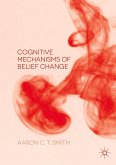How do people perceive time? This book presents a wealth of contemporary and classical research, including some of the history and philosophy of time perception. Influential internal clock-based models of time perception receive an in-depth but non-technical introduction and discussion. The role of cognition and emotion in perceiving time is also explored, as well as questions derived from time experience in daily life, such as why time seems to pass more quickly in one situation rather than another. Classical and modern research on timing in children is reviewed, as well as work on time perception and time experience in older people. Leading recent models of animal timing are also discussed in a non-mathematical way.
"Given that this book provides an overview of mainstream research on time perception, it is perhaps most useful as a text or supplement in graduate-level course in cognitive or experimental psychology. In addition, given that the models described were developed in the context of research on non-human animals, it may also be of use in a graduate level course in animal behavior." (Jeffrey B. Wagman, PsycCRITIQUES, Vol. 61 (43), 2016)








